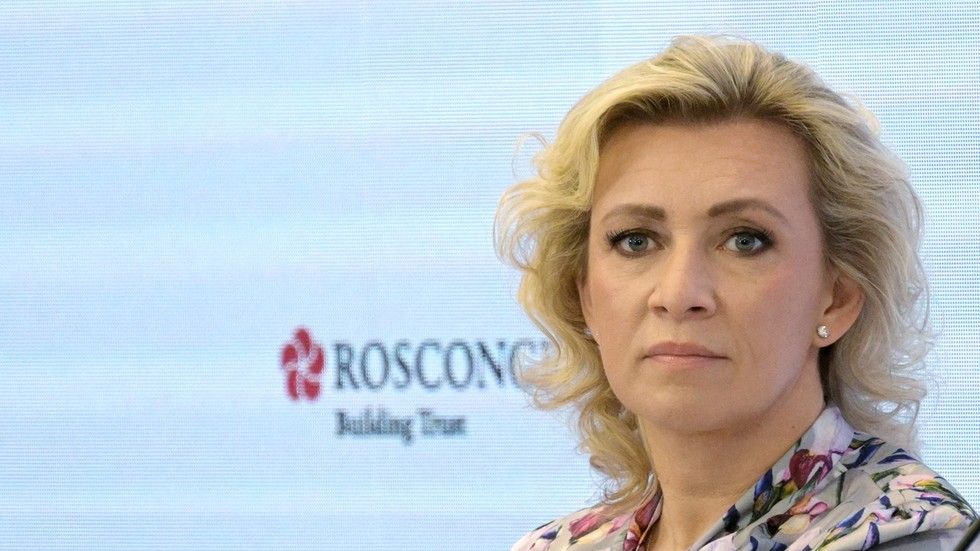
The journalist killed in the shelling and his injured colleagues were to report on the use of cluster bombs by Kiev, Russia says

FILE PHOTO: Russian Foreign Ministry’s spokeswoman, Maria Zakharova © Sputnik / Aleksey Danichev
Ukrainian shelling that claimed the life of a Russian journalist and left several others injured was not a coincidence, the Russian Foreign Ministry’s spokeswoman, Maria Zakharova said on Saturday. Earlier the same day, a war correspondent of Russia’s RIA Novosti, Rostislav Zhuravlev, was killed in an artillery strike in the Zaporozhye Region.
The reporter, together with his colleagues, who also suffered injuries in the strike, was collecting information on the Ukrainian cluster bomb strikes on the settlements in the region, Zakharova explained. “The Kiev regime is continuing its practice of criminal terror,” she said in a statement on Telegram.
The ministry’s spokeswoman also accused Kiev’s Western backers of tacitly condoning such actions by the Ukrainian military. Washington, London and Paris express their concerns over journalists’ security “in words only,” she said. Moscow has “no illusions” about the potential reaction of the “relevant international bodies,” the official said, adding that those are likely to “turn a blind eye to this heinous crime.”

Read more
Such a position only proves these bodies’ “political bias and dysfunctionality”, Zakharova said, adding that their silence eventually makes them “accomplices to the terrorist rampage of Kiev.” The ministry’s spokeswoman also vowed “inevitable and well-deserved punishment” for all those behind the killing of the Russian journalist. Those who supply the Ukrainian military with cluster bombs “will share full responsibility” for his death, she added.
Earlier this month, US President Joe Biden’s administration decided to give Kiev the controversial cluster munitions in a move that sparked some criticism even among some US NATO allies, including Canada, Germany and the UK.
Russian President Vladimir Putin said in July that the use of cluster bombs should be regarded as a war crime. Such weapons were banned by more than 110 nations under a UN convention in 2008 due to the grave danger they pose to civilians. Cluster munitions release small bomblets that get scattered around a wide area and can remain unexploded for years, effectively acting like landmines.




